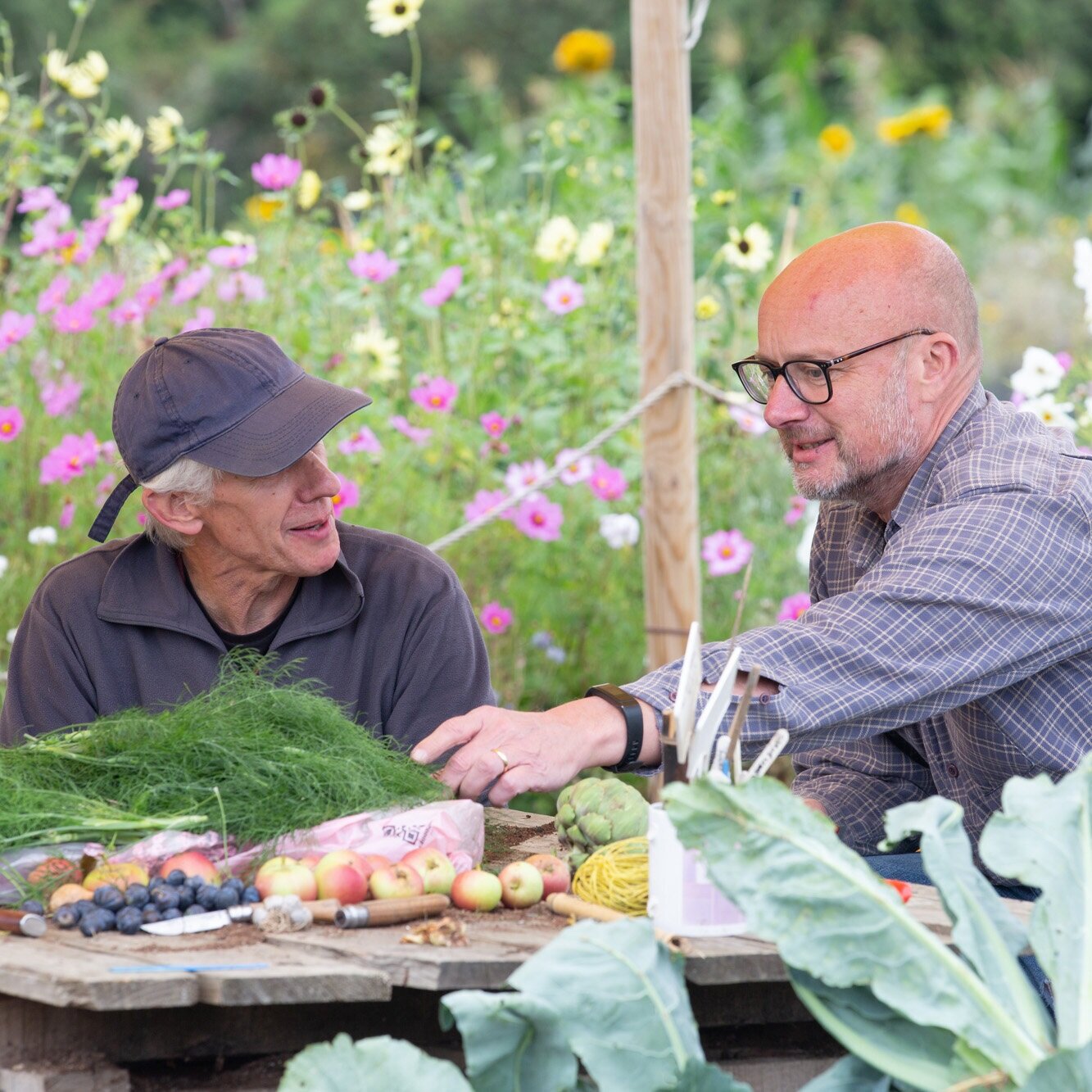Co-creating welcoming community farms - where people can grow and share food with each other - leads to healthier, stronger and more cohesive communities.
As we spend more time engaged in sedentary work in the knowledge based economy, so the value of time spent outdoors in nature increases. Image: Sam Mellish | CoFarm Cambridge
Healthier communities
After the second world war, industrial farming methods were rolled out across the UK and communities became less involved in producing our food.
Changes to industries bring changes to working patterns, practices and lifestyles which, for many, have become less physically active as we move towards a more knowledge-based economy.
We recognise that few households in the UK feel they have enough time, access to land or knowledge to successfully grow the food they need to thrive. We believe it is possible to rewire our communities’ relationship with food and with each other.
We seek to optimise the physical and mental health benefits of communities being involved - even in a small way - in the production of their food. This might be for as little as an hour every couple of weeks.
stronger communities
In the past, our food and farming systems played a key role in forming the fabric of our communities and cultures in the UK. Working together to grow, raise and harvest enough food for everyone helped to form and strengthen bonds between people in communities.
The long school summer holidays that we still have today give us a clue about how important the harvest would have been in our communities - an activity the whole family would have taken part in.
We’re not harking back to this time - which would, no doubt, have been fraught with many hardships. We do, however, believe that a 21st century food and farming system should present more opportunities for people in communities to grow together, to eat together and celebrate together.
Food and farming historically played an important role in strengthening communities. Image: Sam Mellish | CoFarm Cambridge
Co-farming provides opportunities to talk. Image: Sam Mellish | CoFarm Cambridge
safer, More Cohesive communities
We believe that community-based farming can - if designed right - provide the ideal platform for people to listen to, get to know and understand each other better.
By creating opportunities for people to get together in physical places - away from digital echo chambers - and engage in meaningful and enjoyable activities together, we become less susceptible to being influenced by those who would seek to create division and fear in our communities.
We believe that it is vital to provide places where people’s differences – in age, ability, culture, ethnicity, gender, sexuality, faith or education - are not just tolerated but warmly embraced. This has, of course, always been important but feels especially so as the UK redefines its relationship with our European neighbours and the rest of the world.







